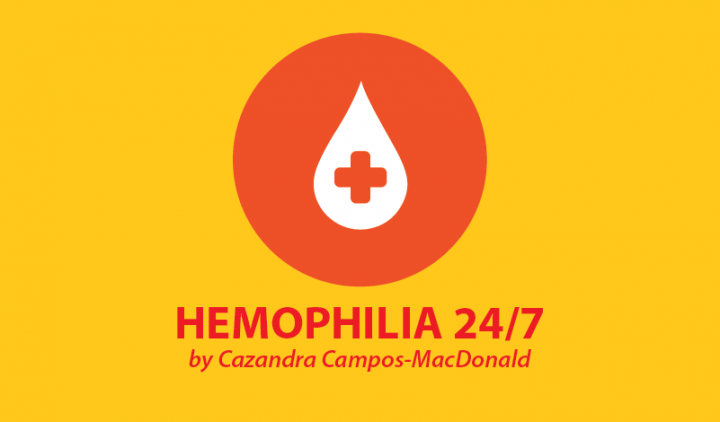In Caregiving, Raising the White Flag Can Be a Sign of Strength

There is no shame in raising the white flag when caregiving challenges become too taxing. The white flag, an international symbol used when someone seeks a truce or ceasefire, usually is the last recourse after a long list of possibilities has been exhausted.
For a parent or caregiver, it is easy to feel overwhelming guilt about the situation, even when no feasible options to address a care problem are available. As a mother of two sons with severe hemophilia, I understand the white flag.
As an example, during my caregiving experience, a three-year period when my youngest son, Caeleb, was in grade school seemed to last an eternity. Caeleb was terrorized by needles. But his inhibitor required daily infusions, so to access his port, my husband and I took him to a hemophilia treatment center (HTC) once a week. Before we decided to do this, our time at home was marked by endless tears, failed attempts to access his port, and great frustration from the entire situation.
Eventually, we raised the white flag and told HTC staff that we needed help.
When I took Caeleb to the HTC during the first of what would become weekly trips, I remember being in a room with four nurses. The five of us held Caeleb down while another nurse attempted to access his port. My face was close to his, and I could feel the heat from his red cheeks and smell the salt in his tears. At that moment, I knew I had to step out of the room. I didn’t want my son to see me crying, which would only make the situation worse. I stood outside the door, listening to my son scream as tears ran down my face. I felt like I had given up.
“What could I have done differently?” I wondered. “Why is this so hard?”
I felt like a failure.
In the middle of this difficult time, I realized that waving the flag of surrender and calling in reinforcements was the best thing for Caeleb and our family. Accessing his port — and the trauma that came with it — no longer fell upon my husband and me. We removed ourselves from the loop in order to rest and to heal.
Hearing Caeleb scream was a regular part of our hemophilia experience in those days. I am grateful those days are now in the past.
Raising a child with a chronic illness entails an infinite number of challenges. Getting to appointments, speaking with doctors, and facilitating care are crucial. However, as parents and caregivers, it is important to remember that being overwhelmed can prevent people from functioning at their best. If raising the white flag brings a moment of respite, then raise the white flag. Doing so does not signify weakness, but rather strength.
Not everyone can admit they need help, but for those who do, hope and strength often flourish.
***
Note: Hemophilia News Today is strictly a news and information website about the disease. It does not provide medical advice, diagnosis, or treatment. This content is not intended to be a substitute for professional medical advice, diagnosis, or treatment. Always seek the advice of your physician or another qualified health provider with any questions you may have regarding a medical condition. Never disregard professional medical advice or delay in seeking it because of something you have read on this website. The opinions expressed in this column are not those of Hemophilia News Today or its parent company, BioNews, and are intended to spark discussion about issues pertaining to hemophilia.







Comments